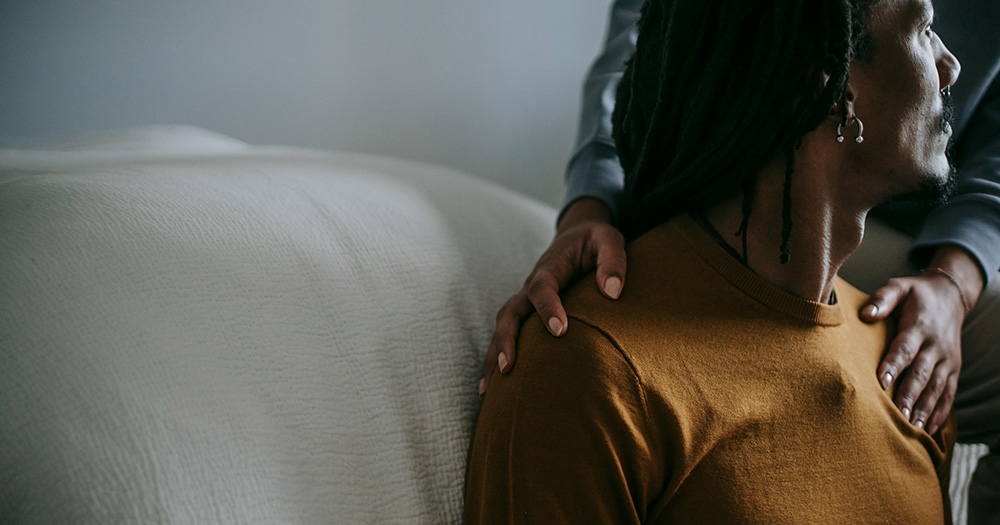Several Irish community organisations working across LGBTQ+ issues and domestic, sex, gender and sexuality-based violence have come together to establish the LGBTQI+ Community IPA (Intimate Partner Abuse) Network.
Even though LGBTQ+ people experience dangerous intimate relationships at the same rates as heterosexual women, intimate partner abuse within queer relationships is rarely discussed and severely underreported. This is partly because many traditional domestic abuse campaigns and research focus on physical violence and often refer to hetero and gender-normative spheres.
To tackle this issue, the LGBTQI+ Community IPA Network is working on developing cross-training and pathways between the domestic violence and LGBTQ+ sectors to enable a more nuanced, informed, and inclusive response to intimate partner abuse.
The network includes groups working across LGBTQ+ issues and specialist domestic, sex, gender and sexuality-based violence organisations. These include: Belong To LGBTQ+ Youth Ireland, Gay Health Network, GCN, HIV Ireland, LGBT Ireland, LINQ Ireland, Man2Man, Men’s Aid Ireland, Men’s Development Network, MPOWER, Outcomers, OSS Cork, Safe Ireland, ShoutOUT, Women’s Aid, and Outhouse.
Drawing on the strengths of each group, the network aims to raise awareness about how domestic, sex, gender, and sexuality-based violence manifests in LGBTQ+ relationships while ensuring the highest principles of solidarity, intersectionality, and accountability in their work.
The group said: “As members, we will work to ensure the highest principles and practices of solidarity, intersectionality, and accountability in our work. We look forward to updating you on the actions and work of the LGBTQI+ Community IPA Network in the coming months, as we collectively work to develop approaches that will more effectively respond to the needs of LGBTQI+ survivors of intimate partner abuse.”
View this post on Instagram
Identifying domestic abuse within LGBTQ+ relationships can be difficult. Forms of abuse may be physical, emotional, psychological, financial, or sexual but all types of abuse are damaging, even if they are not obvious to other people.
In a previous article for GCN, Val, a survivor of domestic abuse, shared: “As an intersectional feminist, there is a vulnerability in the tension between fighting for the rights of women and finding yourself in an abusive situation with a woman.”
They added: “When I went through this, the most vulnerable moment in my life, I couldn’t hear any voices like mine. There were no queer, non-binary people sharing these stories that I could find. All I needed was one voice or one person to validate me in my experience and it wasn’t there.”
Those experiencing intimate partner abuse can reach out to the following help organisations for support.
- Women’s Aid helpline for 24/7 support at 1800 341 900, available to assist anyone experiencing abuse, regardless of gender.
- Men’s Aid helpline – 01 554 3811
- The National Male Advice Line run by Men’s Development Network, 1800 816 588
- LGBT Helpline, 1800 929 539.
- Aoibhneas is a women and children’s refuge, 01 867 0701 or email [email protected]
- Immigrant Council of Ireland supports migrant women experiencing domestic violence, 01 674-0200
- HSE information line, 1800 700 700
- Safe Ireland provides a list of services across all Ireland
- Dublin Rape Crisis Centre, 1800 778 888
Anyone in immediate danger should call emergency services at 999.
© 2024 GCN (Gay Community News). All rights reserved.
Support GCN
GCN is a free, vital resource for Ireland’s LGBTQ+ community since 1988.
GCN is a trading name of National LGBT Federation CLG, a registered charity - Charity Number: 20034580.
GCN relies on the generous support of the community and allies to sustain the crucial work that we do. Producing GCN is costly, and, in an industry which has been hugely impacted by rising costs, we need your support to help sustain and grow this vital resource.
Supporting GCN for as little as €1.99 per month will help us continue our work as Ireland’s free, independent LGBTQ+ media.
